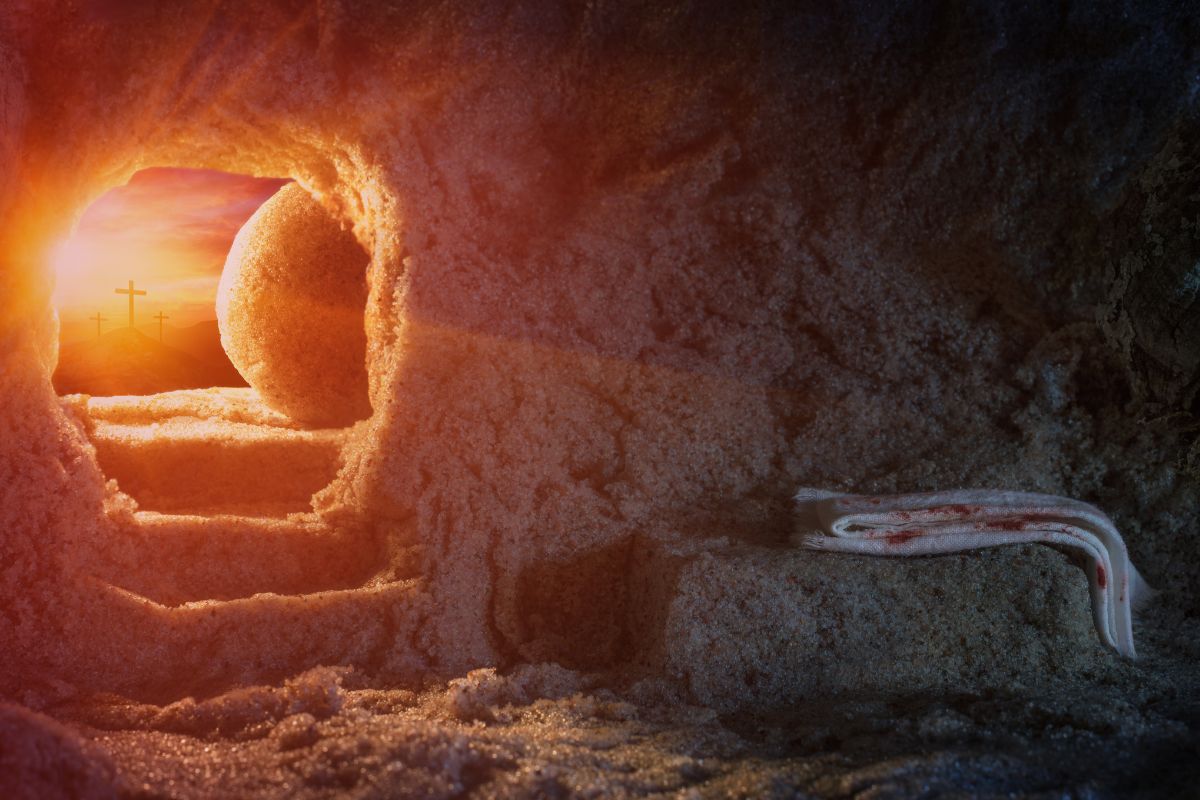
I would like through this article to invite you to revisit the first Easter event and undergo the same experience that the disciples would have had on the first Easter Sunday.
This could be done by asking one question: for whom was the stone placed to seal the tomb of Jesus and for whom was it rolled away? Was it for Jesus or his disciples and the world?
For an answer, let us read and understand the passage found in Mark’s Gospel 16: 1- 8 (refer also to Mat 28: 1-8 and Lk 24: 1-10).
The Sabbath was over by 6 pm and early next morning, three women – Mary Magdalene, Mary the mother of James and Salome – with spices (certainly not bought on the Sabbath day, so bought before, which means they were well prepared) were heading towards the tomb to anoint Jesus’ body.
Jews did not have the practice of embalming; if so, it was their love for Jesus, which brought the women to the tomb. Approaching the tomb, they asked a very pertinent question: “Who will roll the stone away from the entrance of the tomb?” (16:3).
The large stone was not easy to roll as it would have been slipped into a groove cut in the bedrock in front of the entrance.
This question raises several other questions, such as where are the ‘men disciples’ who could have helped us now? Will people make fun of us and ridicule this act of ours?
Do we have to take this kind of risk when conditions are not favourable to us – when persecution and suffering are so close to us?
Nevertheless, in this situation of hopelessness and lifelessness, a great shock awaits them as they approach the tomb. They found the tomb opened, the stone rolled away and Jesus’ body missing – their last straw for new hope and new life had disappeared.
However, at that very moment of despair and despondency, Jesus encounters them. Jesus did not need to open the tomb to come out, as He after his resurrection could easily pass through closed doors to visit his disciples (Jn. 20:26).
The stone was rolled away for the women to see the empty tomb. Jesus heard their prayer “Who will roll …?” and surprises them with a lifetime encounter by meeting and talking to them at the tomb.
So, in a place where one normally finds death, hopelessness, and loneliness, these women found new hope and life in Jesus. Now, don’t we as disciples of Christ very often find ourselves in hopeless and lifeless situations?
Especially when we hear about wars, rumours of wars, unstable governments, rising food, and energy bills, stock markets falling, losing jobs, growing terror and violence, fear of persecution, families breaking up, etc!
In such a time as this, we need to find courage and strength like the devoted women who believed in Jesus and pressed on to Jesus’ tomb with the hope of meeting Jesus, their dead master and Lord, although not the resurrected Jesus.
Jesus can surprise us with the same kind of encounter to experience new life and hope in Him as He did to the women. He takes the extra step to roll the stone away that keeps us away from encountering Him.
Therefore, this Easter, let us allow a fresh encounter with our risen Jesus. Remember, the stone was and is rolled away for the women, for other disciples, for the world to see the empty tomb and declare that He lives, and certainly not rolled away for Jesus.
Let us not forget this Easter about the empty tomb that is opened for us, but instead, let us testify of this to others and give new hope and life to those who have lost it or are losing it – God can roll your and their stones away too.
For Lenten Special articles
https://www.barnabastoday.com/category/faith/40-day-challenge/








